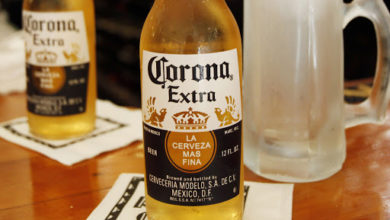Here’s Why It’s So Hard To Have Your Period When You’re Homeless
[ad_1]
Homeless women typically know where to find a safe place to sleep or a hot meal to eat. But when it comes to taking care of their feminine hygiene needs, they often have nowhere to turn.
Tampons and sanitary pads usually top the list of needs at shelters, since they’re pricey and supporters don’t often donate them, social workers told Al Jazeera. Compounding the issue is the fact that clean showers are also scarce, and not washing during menstruation can lead to infections.
It’s a desperate situation that many homeless women feel resigned to accept.
“I’ll never be clean,” a young woman living on the streets of San Francisco once told Doniece Sandoval, the entrepreneur behind Lava Mae, a mobile shower program, according to Nation Swell.
Maribel Guillet, 36, is all too familiar with that despondent feeling.
Guillet, who lives in a Bronx, New York, homeless shelter, typically menstruates for about 10 days and experiences heavy bleeding, she told Al Jazeera. But because of the shelter’s strict restrictions, she can’t always use the restroom as often as she needs to.
The fact that menstruation is a taboo topic to begin with, means that people who are able help, often aren’t even aware that such a vast need exists.
While donating clothes to a homeless day center in Camden, New Jersey, back in 2009, Joanie Balderstone and her partner, Rebecca McIntire, asked the women there what else they really needed.
The overwhelming consensus was pads and tampons, the couple wrote on their organization’s website.
That interaction is what spurred the pair to found Distributing Dignity, a nonprofit that donates bras and feminine hygiene products to women in need.
A few months later, they hosted their first “Mardi Bra” party, according to Philly.com.
Guests donated 80 new bras and hundreds of feminine products that the founders distributed to shelters in Camden.
They’ve since expanded to help shelters throughout South Jersey and Philadelphia.
Gaining access to such an everyday item has proved to be invaluable to the women Distributing Dignity helps.
When residents at Camden County Women’s Center, which supports survivors of domestic abuse, recently got shipment of sanitary napkins, they were thrilled to see that the box contained pads of varying sizes.
“It sounds silly,” Jeen Moncayo, a case worker at the center, told Philly.com, “but the choice is empowering.”
<a href="https://www.facebook.com/HuffPostImp
act”> Like Us On Facebook
Like Us On Facebook
 Follow Us On Twitter
Follow Us On Twitter
[ad_2]
Source link



